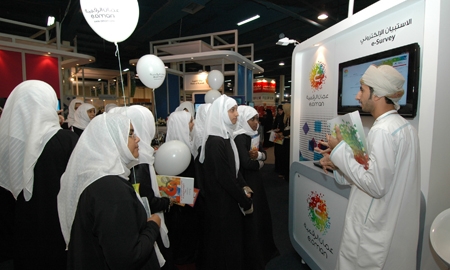The initiative to equip Oman with an advanced IT infrastructure assumes that even the most sophisticated technology can be effective only when the people who stand to benefit from it know how to make it responsive to their own needs. Nearly a decade after the Digital Oman Strategy (or e.oman as it is known) was drawn up,
Dr Salim Al Ruzaiqi, CEO of Oman’s Information Technology Authority, remains confident that this once-distant goal is within sight.
“We see technology as a tool to achieve specific goals such as economic diversification and job creation,” said Dr Al Ruzaiqi, “and a high level of IT literacy in society at large is the key.” Accordingly, the government has identified the groups earmarked for its priority training initiatives. Government employees, women, and would-be business entrepreneurs head the target list, while at the same time a more widespread consciousness-raising campaign seeks to make the general public more open to the idea of a computer-enhanced society.
Government employees are important because the Sultanate sees the Internet and other electronic delivery systems as the future access gates for many of the services they provide. “One key capacity building initiative, the Government IT Training and Certification programme (GITTC), focuses on training nearly 100,000 government employees to improve IT literacy within the government,” noted Dr Al Ruzaiqi.
The women of Oman, he added, have been granted exclusive use of nine of the 19 Community Knowledge Centres (CKCs) that have been set up in towns across the country over the past two years, as one-stop centres offering free access to computers and the Internet, as well as serving as classroom venues for training in basic and advanced digital skills. Over 24,000 men and women have taken part in the courses to date and the waiting list just keeps getting longer.
Finally, the Omani government hopes to have IT on board in its campaign to overcome long-standing cultural roadblocks and encourage the growth of small businesses and start-ups among individuals just out of college. Entrepreneurship as a career is being talked up in schools because “young people in Oman are really talented; they just need someone to show interest in their aspirations,” Dr Al Ruzaiqi emphasised. “We want to increase the quality of life and opportunities available to the next generation.”

0 COMMENTS